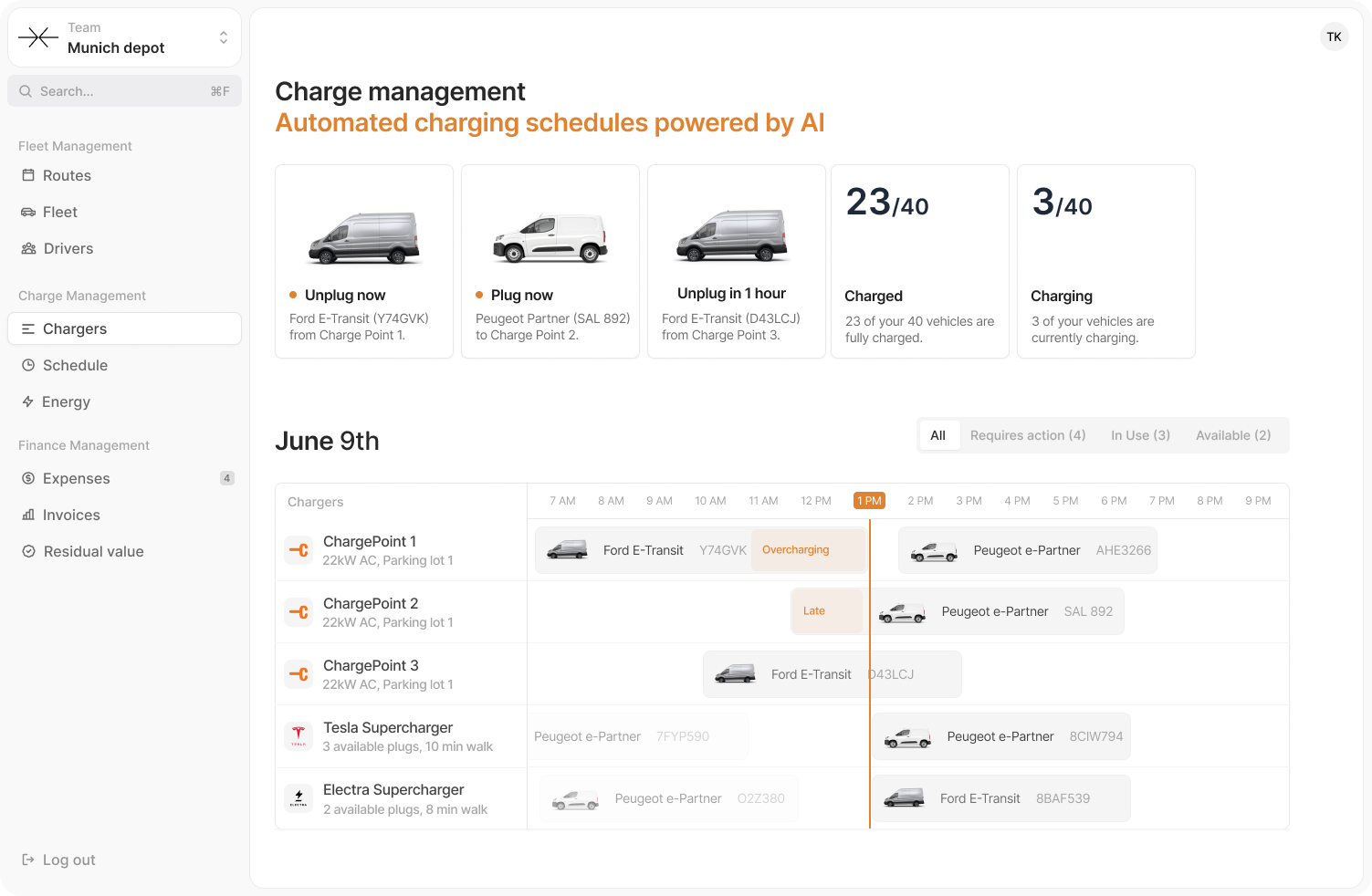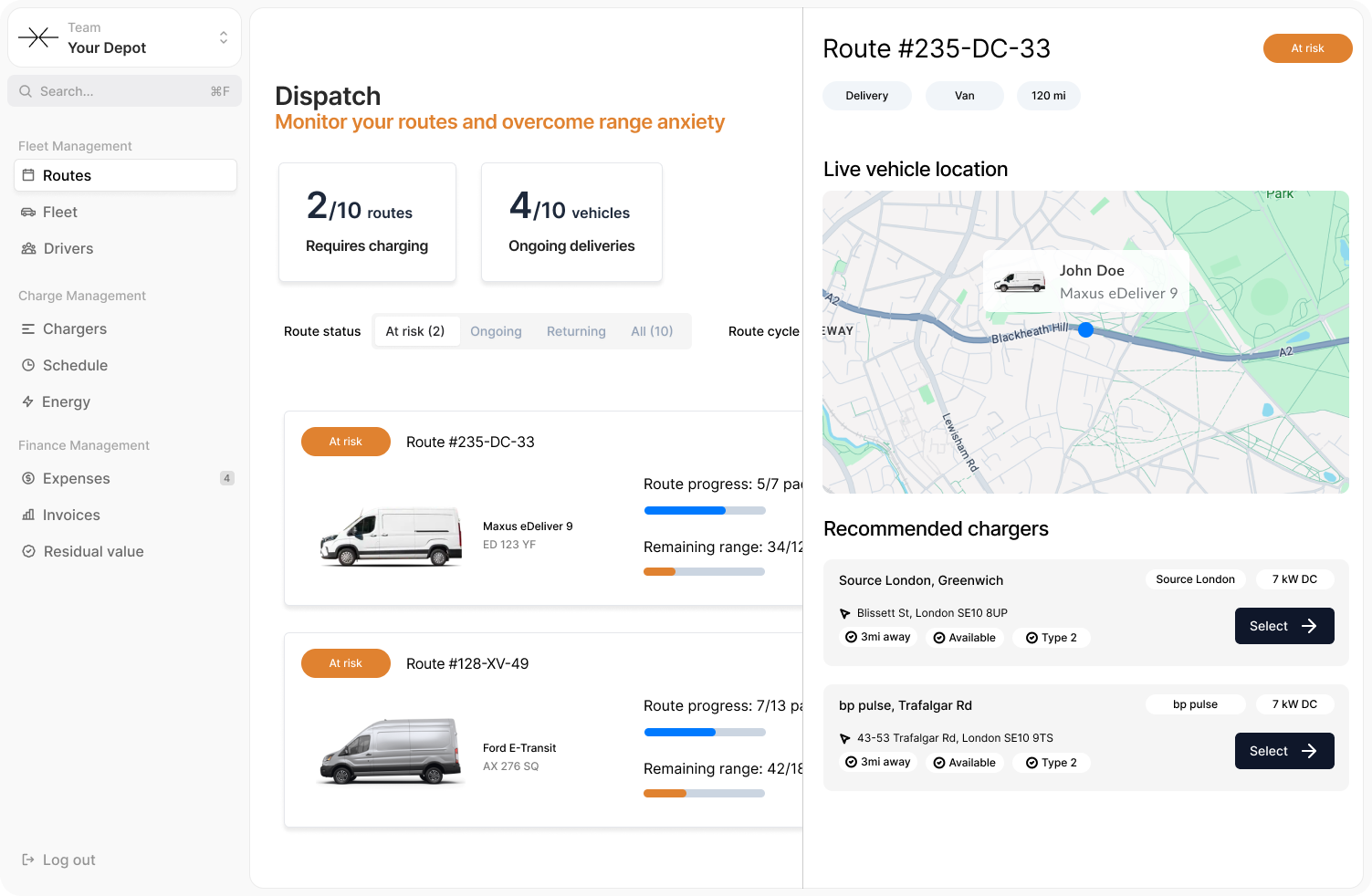Imagine you work for a car rental agency or a package delivery company and you’re in charge of a fleet of vehicles. If you’re switching to EV vehicles, it becomes more complex to manage your vehicles due to long charging time and limited charging point availabilities.
Guided Energy, a French startup that raised $5.2 million from Sequoia Capital and Dynamo Ventures at the end of 2023, is building a software tool that help EV fleet operators when it comes to charge management and dispatch. The company aggregates data from vehicles, public and private charging points and uses machine learning to tell you when and where you’re supposed to charge your vehicles.
“The beauty of the EV ecosystem is that it is all online. This means, we connect to both EVs and charging points directly. Where customers already have telematics or supervision platforms in place, we can integrate with them using APIs into our platform, giving them a single, real-time, unified view of their EV operations,” co-founder and CEO Anant Kapoor told me.
Anant Kapoor previously led product teams working on fleet management software to track and cut emissions. Eric Daoud, the CTO of the company, is a PhD in machine learning from Inria.

Image Credits: Guided Energy
Some of Guided Energy’s customers include Sixt and Addison Lee. Generally, customers have in-house charging points. But they often hit the limit — all charging stations are already occupied and there’s not enough room to add another one.
“Some resort to public charging while others even charge at employees’ homes, but struggle to incorporate these external solutions into their daily operational, reporting or finance workflows,” Kapoor said.
The core of the issue is that charging price varies significantly for EV vehicles. For instance, charging at home is usually cheap but pretty slow. Charging on the highway is usually much more expensive than other options.
In addition to pricing, a software tool like Guided Energy has to take into account the amount of time that it’ll require to put enough energy in the battery. So the distance between the charging point and the location where the vehicle needs to be is an important factor as well.
The startup thinks it can offer direct and indirect savings of up to $10,000 per electric vehicle when you take into account both charging prices and operating costs — sending someone to a remote area in a big city can be costly too. As a result, Guided Energy charges a subscription fee per vehicle, something along the line of “€30-40 per vehicle per month.”
Guided Energy already tracks more than 1,000 vehicles on its platform. That number should double in the next few months as the company has already signed contracts with additional customers.

Image Credits: Guided Energy























































